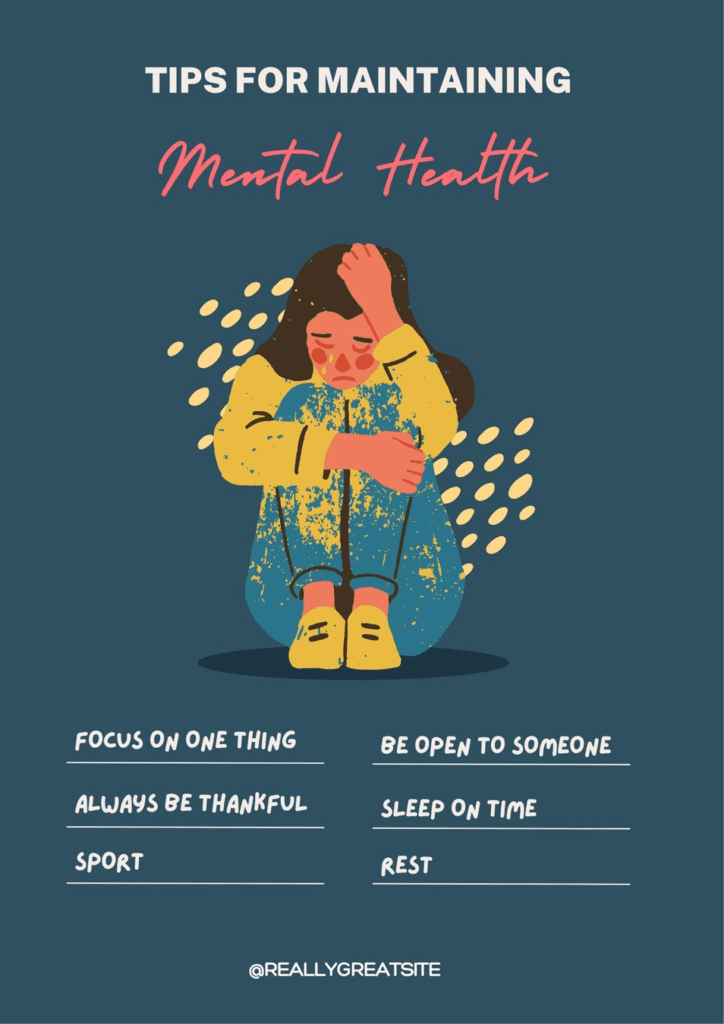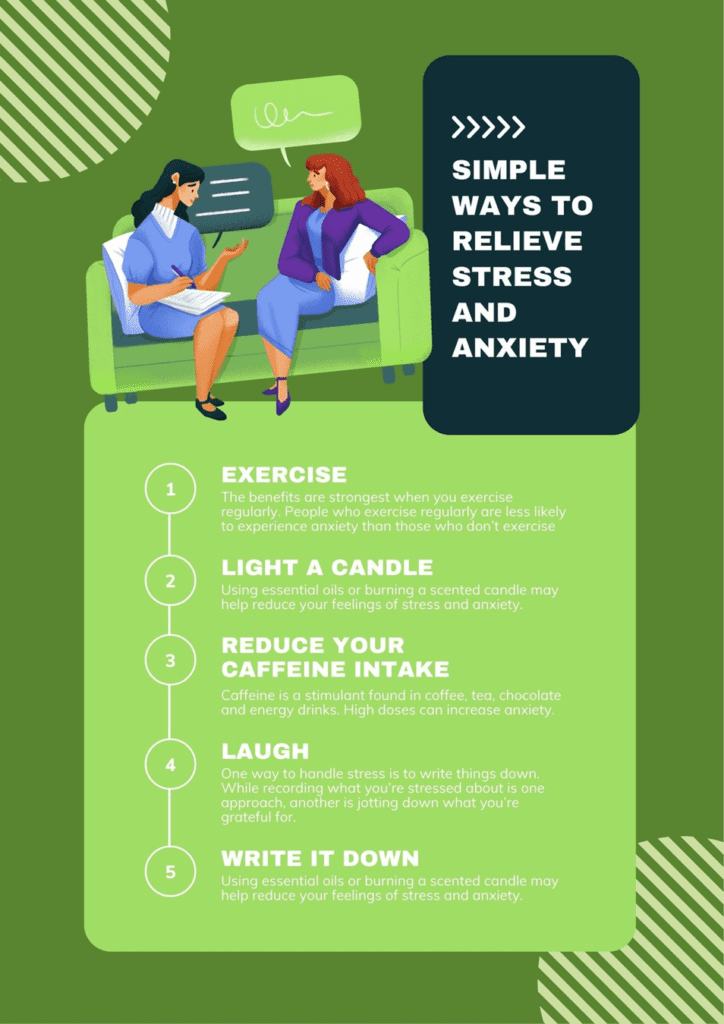Tips for Maintaining Mental Health

General Coping Strategies for Mental Health
Here are some suggestions for coping with their mental illnesses collected from people who are living with them. As with any list, not every suggestion will work with every person.
Professional / Peer Help
- Psychotherapy with a therapist trained to know how to discover and deal with psychological problem areas.
- Effective medication in an effective dosage prescribed by a psychiatrist. If a medication is not working for you, work with your doctor to find another medication or therapy that does work.
- Join a peer support group.
- Consider adding alternative therapies to your treatment plan. Ex: Acupuncture, Acupressure, Homeopathy, Dance therapy, Art therapy, Music therapy, Tai Chi, Yoga.
- Help someone else, especially someone with problems like yours.
- Work with a counselor to identify and make progress toward career goals
Personal Care
- Eat a good solid balanced diet.
- Little or no caffeine
- No alcohol. Alcohol is a depressant and often interferes with medication.
- Get plenty of rest. If you cannot sleep, speak to your doctor.
Stress Management
- Exercise. Elevate the heart rate for 15-30 minutes a day, with your doctor’s permission. Examples: walking, jogging, aerobics, swimming …
- Avoid getting over-committed in time to any activities, so that you feel overwhelmed.
Emotional Self Awareness
- Learn how to recognize warning signs of a coming episode of mental illness and take immediate action to head it off or minimize it. Involve your family so they can help you.
- Do something to make you laugh, cry, or get angry in a safe place. Ex: watch a sad movie and cry.
Life Enrichment
- Indulge in some creative activity. Ex: music, drawing, painting, crafts, creative writing, weaving
- Take an adult school class: swimming, art, history …
- Engage in volunteer work
- Continue to be active with friends and make efforts to develop friendships
- Seek out helpful relatives
Spirituality
- Learn how to love yourself as an individual, spiritually, and creatively. There is no one else on Earth quite like you.
- Meditation. 15-60 minutes of quiet listening to your heartbeat and breathing. However, if you have psychotic issues this can be disturbing for you, so do not use meditation, guided or silent.
General Strategies for Coping with a Loved One’s Mental Disorder
Here are some suggestions collected from people who have loved ones with a mental disorder:
Professional / Peer Help
- If someone is suicidal, get immediate attention for him or her. Call 988 Suicide and Crisis Lifeline if there is an immediate danger.
- Make sure that the person gets the help needed, for example, a therapist or a hospital stay. You may have to help make the appointment and go with him or her.
- Get professional help for yourself to learn what your own responsibilities and capabilities are.
- Join your own support group, formal or informal.
Learn about Mental Health & Mental Illness
- Read and learn all you can about the mental disorder that your loved one has.
- Be flexible and patient.
Cures are rarely instantaneous
- Learn to recognize the signs of the mental disorder.
Communicate with your loved one
- Tell the person that you love and care about him or her.
- Visit him or her, especially if hospitalized. A smile, a flower, a picture, or a short hug can make all the difference.
- Avoid doing things that trigger the person’s disorder, ex: if the person become anxious or depressed when he or she is pressured to hurry, do not try and rush things.
Help your loved one live with the illness
- Help the person to keep his or her days structured.
- Support efforts to find the medicines and therapies that work best.
- Monitor medicine intake.
- Encourage physical exercise, good diet, plenty of sleep, creative activities, and sunlight.
- Learn to recognize the warning signs that an episode is going to happen, and help your loved one to take action to head it off or minimize it.
- Plan future activities for both of you to look forward to.
- Maintain social activity with your loved one, such as going to the movies.
- Make the best of the person’s good days. Drop the housework to enjoy time with your loved one.
- Keep guns out of the house.
Have a life of your own.
- If the depressed person needs monitoring or assistance, get help.
- Plan future activities for yourself alone.
- Live one day at a time.
Information from: Mental Health Community Minister Mission Peak Unitarian Universalist Congregation Fremont, CA By Rev. Barbara F. Meyers

